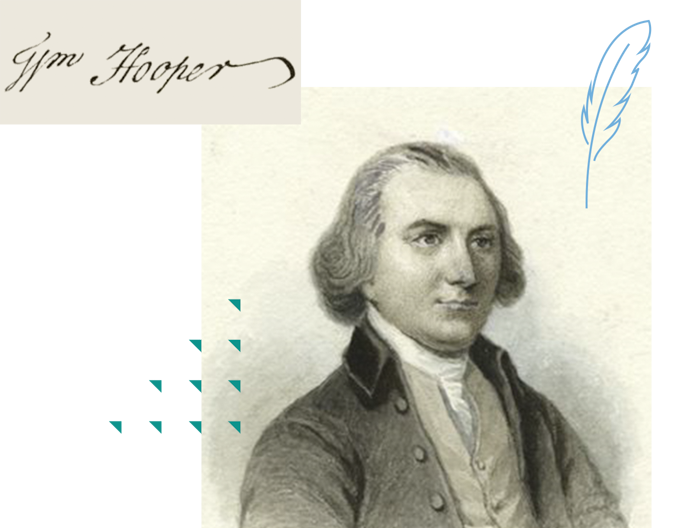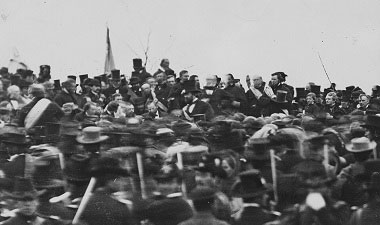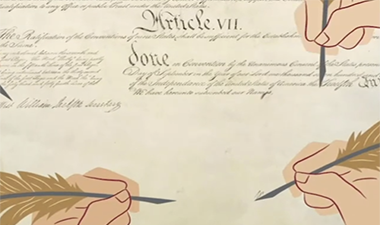Summary
William Hooper was a social conservative deeply concerned about the rights of the colonies. Hooper worked with Thomas Jefferson on the committee to draft the Declaration of Independence.
William Hooper | Signer of the Declaration of Independence
2:06
Biography
William was born in Boston, the oldest child of Scots immigrants. He was raised as an Anglican, and his parents hoped he would become a clergyman. He did not share their hopes, however, although he did earn an M.A. in theology from Harvard. Instead, he began the study of the law under the famous [or infamous] James Otis. He was admitted to the Massachusetts Bar in 1764 but moved to Wilmington, North Carolina, where he established a successful legal practice. By 1770, he was appointed Deputy Attorney General for the colony.
Hooper was a social conservative and a law-and-order-man; when the backcountry farmers of North Carolina organized the Regulator Movement in opposition to what they considered excessive colonial government taxation, excessive legal fees, and general political corruption, Hooper supported the Royal Governor’s efforts to squash this rebellion. In 1770, during Regulator riots in Hillsborough, Hooper was dragged through the streets by angry rioters. Yet by 1774, he was deeply concerned about the rights of the colonies whose protests against Parliament’s taxation policies and the Crown’s efforts to suppress colonial protest mirrored, to a great degree, the Regulator protests between 1768 and 1771.
In 1773 Hooper was elected to represent Campbellton [later Fayetteville] in the North Carolina colonial assembly. In 1774 he was one of his state’s three delegates to the First Continental Congress. Along with fellow delegate Joseph Hewes, he traveled 450 miles over rough roads to get to Philadelphia for the opening of the congress in September of 1774. Even before the congress convened, however, Hooper had predicted independence. In a letter to his friend James Iredell that April, Hooper wrote that “The Colonies are striding fast to independence, and ere long will build an empire upon the ruins of Great Britain.” This prediction earned him the epithet, “Prophet of Independence.”
During his term in the Second Continental Congress, Hooper worked with Thomas Jefferson on the committee to draft the Declaration of Independence. He signed the final document, on August 2nd, but left Congress in 1777 when he contracted yellow fever. Already weakened by recurring bouts of malaria that he had contracted in North Carolina, he knew he could not continue to serve as a congressional delegate. In formally resigning his seat on April 29 of that year, he wrote “The situation of my own private affairs…did not leave me a moment in suspense whether I should decline the honor intended me” to continue in national politics.
During the revolution Hooper donated much of his legal earnings to the war effort. There were other costs as well, for his support of the revolution separated him from his brothers who remained loyal to the Crown. He also earned the particular enmity of the enemy. When the British military took Wilmington in 1781, they burned Hooper’s home, forcing his wife and two children to flee for their lives.
After the revolution secured American independence, Hooper’s conservative inclinations returned. In his legal practice, he acted to protect the rights of former Loyalists, supporting their efforts to recover property confiscated from them and working to remove the restrictions placed upon them as traitors. His call for moderation in the treatment of these men put him at odds with some of his old friends and neighbors. His social elitism and his fear of mob rule led many North Carolinians to distrust him when he declared his support for ratification of the Constitution.
Although he had retired from national politics, Hooper remained active in his state’s government, serving in North Carolina’s General Assembly between 1777 and 1780. But his health continued to deteriorate, made worse by his heavy drinking, and on October 4, 1790, Hooper, who John Adams called one of three great orators of the Congress, died at the age of 48.








